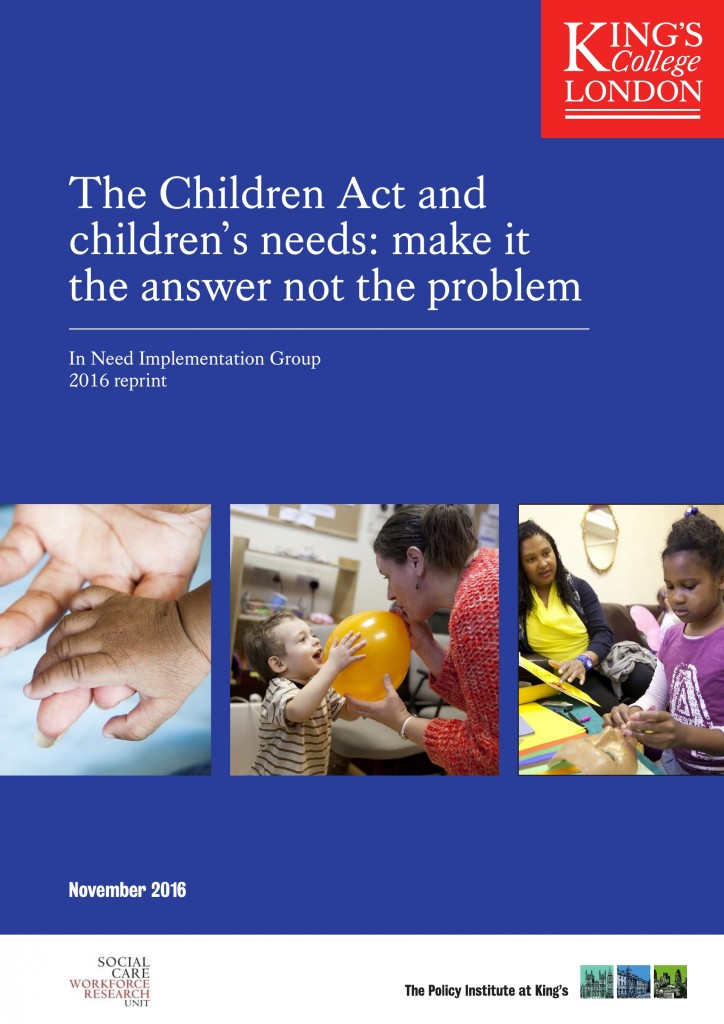 The Policy Institute at King’s and the Social Care Workforce Research Unit have reproduced a 1991 report into the implementation of the Children Act 1989, and updated it with a new foreword and introduction, the latter by Jane Tunstill, who here discusses current legislative proposals. (1,408 words)
The Policy Institute at King’s and the Social Care Workforce Research Unit have reproduced a 1991 report into the implementation of the Children Act 1989, and updated it with a new foreword and introduction, the latter by Jane Tunstill, who here discusses current legislative proposals. (1,408 words)
It is no coincidence that the longest-running play on the London stage, The Mousetrap, which is still being shown after 64 years, is based on a key tragic event in the history of childcare policy in this country. Agatha Christie recognised that the death of Dennis O’Neill in 1945, at the hands of his foster parents, was a topic to engage the attention of her readers, and audiences have certainly proved her right. The tragedy, and subsequent enquiry, directly triggered the Children Act 1948, which introduced a national framework of children’s departments responsible for the systematic oversight of the welfare of children.
The recent release of Ken Loach’s new film, I, Daniel Blake, has reminded commentators of the popular feeling aroused by his 1965 film, Cathy Come Home. The image of children being taken forcibly from their homeless parents by social workers had a powerful impact on attitudes and national child care policy. Indeed, the British Association of Social Workers (BASW) issued guidance in 1971 that no social worker should receive a child into care because of homelessness alone. The 2013 film Philomena attracted huge popular acclaim for its portrayal of the Roman Catholic Church’s forced adoption of the babies of single mothers, and 2016 saw a papal apology for the practice. Continue reading